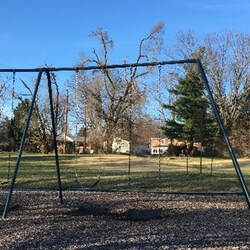|
3/15/2021 0 Comments The Opposite of PLay is Depression One very long, very difficult chapter of my career is coming to a close soon, so I have some space to reflect rather than just survive. Play has been at the forefront of my mind a lot lately. Play is an essential part of being human--it helps in brain development, social cohesion, relieves stress, supercharges learning, and just adds joy to life. I am not a neuroscientist or psychologist, so I won't venture into many details here except to say that scientific research has shown this over and over. Yet, somewhere between childhood and adulthood many of us stop playing, eventually even forgetting HOW to play. This gradual shift is especially common in competitive sports, and it is a big factor in driving youth away from sport. The shift is also a big factor in the unhappiness of many youth who choose to stay in sport for longer. I have seen it in myself and I have seen it in my students. As Dr. Stuart Brown, founder of the US National Institute for Play, says: "The opposite of play is not work, it’s depression." Time is limited and sport is expensive, though, so athletes, parents, and and coaches choose to prioritize setting goals and "moving forward" . Pressure for college application resume building pushes this need for achievement, as does the human need to keep up with the Joneses. With so much focus on goal setting, discipline, hard work, and achievement, we often forget to build play into our athletes' (and our own) days. As an aside, you may have heard the adage "work hard, play hard". Some people use this to refer to the concept of work-life balance. Unfortunately, this saying is often used in the sports world to justify the binge drinking, mixed-age parties, inappropriate relationships, and sexual misconduct all too common in the elite and developmental levels of many sports. Let me be clear--alcohol induced partying and inappropriate relationships are not "play". This is toxic, sometimes illegal behavior and is a conversation for another day. The play that I'm talking about refers to simply doing an activity with no real purpose other than for pure enjoyment. Swinging, geocaching, dancing in the kitchen, trying to play an instrument or draw, learning about houseplants, metal detecting, cheesemaking, whittling, or simply daydreaming--they're all valid hobbies to help us tap into our creativity and explore new possibilities without a goal in mind. We all need this sort of play--adults, kids, elite athletes, beginning athletes, former athletes, and the never-ever athletes. In his book Play: How It Shapes the Brain, Opens the Imagination, and Invigorates the Soul , Dr. Brown says that "Play is the vital essence of life. It is what makes life lively.” I've turned nearly every hobby in my life into a job--skating, Spanish language and culture, yoga. It is tempting to say that I forgot how to play at my hobbies because of this tendency, but the truth is I don't remember thinking of any activity as "play" since I was about 14. The pressure to perform and fear of failure was just too great. It's no wonder I struggled with depression, anxiety, and an ED, and it's no wonder I ended up chronically stressed out and completely burnt out. Once I started gardening and tending to houseplants, I had to let go of perfectionism (there's no way to control Mother Nature). I still haven't embraced failure, and I still sense a teeny twinge of jealousy every now and then when I'm losing Putt-Putt or Scrabble, but I'm slowly relearning what it means to play and experiencing so much joy in the process. How do you make play a priority in your life? Leave a comment and let me know. If you'd like to hear more about Dr. Brown's research on play, check out some of his TED talks here.
0 Comments
|
Author // the skating yogiMy name is Sarah Neal. I have been immersed in the world of figure skating for over four decades. I have seen firsthand the abuse that happens at the higher levels of our sport and experienced how that trickles down into unhealthy training practices and habits at the grassroots. I have seen this play out in the operations of the very institutions that control our sport. Whether for a profession or hobby, pursuing skating should be a joyful, rewarding process, an opportunity for athletic and personal growth, and a place to build lasting friendships. Archives
March 2024
CategoriesAll Athlete Well Being Athlete Well-Being Deep Connections Embodied Movement And Meditation Practices Life After Competition Mindful Living |
Search by typing & pressing enter

 RSS Feed
RSS Feed